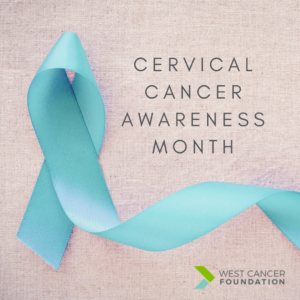January is Cervical Cancer Awareness Month, though it is important to spread awareness all year long.
Cervical cancer, which is cancer of the cervix, is most often diagnosed between the ages of 35 and 44 and was once one of the most common causes of cancer death for American women.
Fortunately, incidence rates of cervical cancer have dropped by more than 50% since the 1970s due largely because of an increase in screenings, like the HPV test and regular Pap tests, which can find cervical changes before they turn cancerous.
Despite downward trends nationwide, many southern states such as Tennessee still face a higher-than-average incidence of cervical cancer. Per data from United States Cancer Statistics and SEER, the national incidence of cervical cancer from 2014-2018 was 7.5 per 100,000 women. In Tennessee, the incidence for the same time period was 9 per 100,000. Narrowing in on Shelby County, the incidence was even higher: 9.7 per 100,000. And unfortunately, both in Tennessee and the nation at large, the burden of disease disproportionately affects African American and Hispanic women.
The most important thing you can do to help prevent cervical cancer is to have regular screening tests. Cervical cancer is one of the most successfully treatable forms of cancer when diagnosed, if detected early and managed effectively by an oncologist. This is why West Cancer Foundation is committed to the education and training of the future of cancer care.
By ensuring that oncologists receive the very best training in a multidisciplinary approach to cancer care, we are working together to attract, train, and retain the very best and brightest in Memphis, and we are proud to partner with University of Tennessee Health Science Center and West Cancer Center and Research Institute for the GyncOnc fellows program.
The program has a dual focus on patient care in a clinical setting as well as research in an academic setting. Fellows will spend time honing their skills and preparing for their future including the latest advancements in diagnostic imaging and testing, genetic screening, chemotherapy, radiation, and hormone therapies, as well as minimally invasive and robotic-assisted surgical techniques for tumor resection or alleviation.
Contributors: Dr. Ben Wilson, Dr. Patrick Blackburn, and Dr. Amal Masri
2021-22 UTHSC Gynecological Oncology Fellows
















